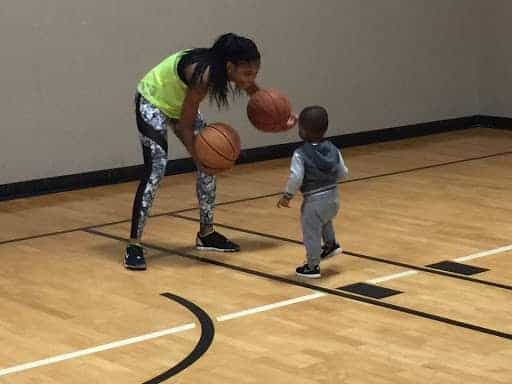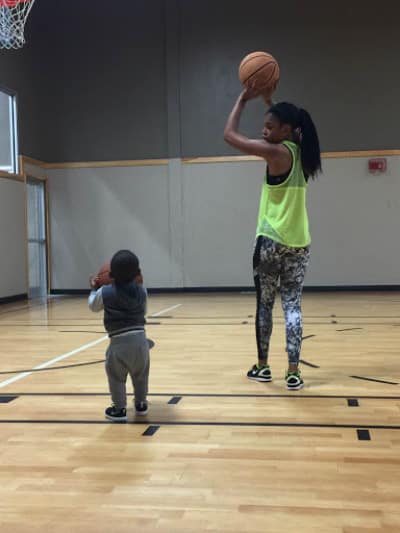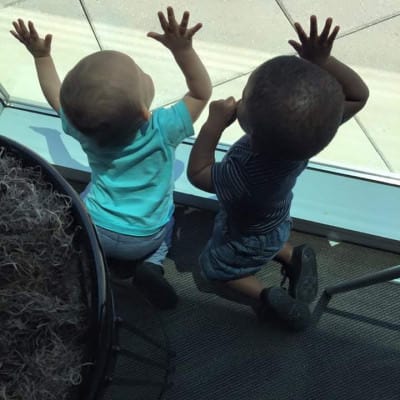

Dear Miles,
You have had a wonderful opportunity to spend large amounts of valuable time at home with your mom. Since your birth, your mom has balanced completing her degree, co-leading in Girls Scouts, and being an at-home mom.
The first and probably the most important classroom exists at home. In this early learning environment, there are so many things you are absorbing from your mom and I as you began to walk and become independent. As your parents, our words, thoughts, and views impact the way your mind organizes feelings, beliefs, and judgments.
Presiding over your early learning experience is humbling, scary, and carries a lot of responsibility. What kids learn about race before they take a single step into a school building is alarming.
Post-racial home culture
Miles, your oldest uncle, Cory, decided when he had his first child that he was going to create a post-racial culture in his home. He tried to avoid relying on racial distinctions to describe people. He also chose not to limit his son, Josiah, to racially-centered discussions, movies, or social groups.
This decision by my brother was not an attempt to escape our history. But it seemed only fair to your uncle to allow his son to grow up with the idea of comparing his own abilities to his peers without the popular stereotypes that currently predefine minority students.
This approach stands in contrast to your mom’s experience growing up. When your mom was little, she recalls many older family members telling her that she needed to be smarter than her white peers or that she needed to work twice as hard as her white peers. This type of racially-centered conversation instills harmful racial prejudices.
Your uncle’s hope was to try to hold a mirror up to himself with the purpose of cleansing his words and eventually his thoughts of hidden racial prejudices.
How schools introduce race
I asked my brother when my nephew was exposed to race. He remembered the day clearly. Cory said that when Josiah was in the first grade, he came home from school one day with many questions about race and the injustices of the past. My brother felt that his son was no longer the same. From then on the lens of race existed for his son, and he began to see the world through external distinctions rather than inward abilities.
Other parents have more extreme stories where teachers, principals, and student peers have created harmful racial scares for their students.
How do we as adults sustain racial prejudices in our children that leak into the school environment? How does the school contribute to existing racial prejudices?
Is prejudice necessarily negative?
One great thinker viewed prejudice as processing stereotypes and categories. Prejudice can be seen as a normal and an inevitable byproduct of how people think.
For example, there are many sports in America, but I am inclined to watch and participate in basketball and football. The sports I watch are a reflection of the sports that I enjoyed playing while I was in school. By default, I expose you to the sports I desire and the hobbies I prefer.
Now, when your mom takes you to the store, you gravitate to basketballs and footballs even if I am not present. Even at your early age, your sports preferences are shaped by my sports preferences.
I believe that this holds true for all categories of life including ethnic prejudices that dominate American culture. Consequently, Miles, your mom and I try to filter how we expose you to race so that it does not impact the formation of your own preferences and prejudices. Being conscious about early home learning could change the educational journey of our children.
From home to school
Children and adults bring their prejudices learned in their home environment to the school they attend. The school becomes a battle ground of prejudices — from race to religion to food — that creates tension among students who have or have not ever been exposed to different perspectives.
Going forward, school staff, parents, and students will need to be more sensitive to this transfer of prejudices from various home environments. It is useful to host an orientation at the beginning of each school year for all grade levels to talk through some of the more harmful prejudices that impact the school experience.
Change agent
Miles, I believe that families and schools will eventually address this issue head on. I believe that teachers and administrators will be forced to concentrate on the harmful racial views that arrive with new students and are sustained by older students. I hope you will be the leader for a post-racial school culture if it does not exist by time you get into school. Be the change agent.
Your Dad
Here are the other letters in this series exploring how to change the trajectory of black men in North Carolina.



